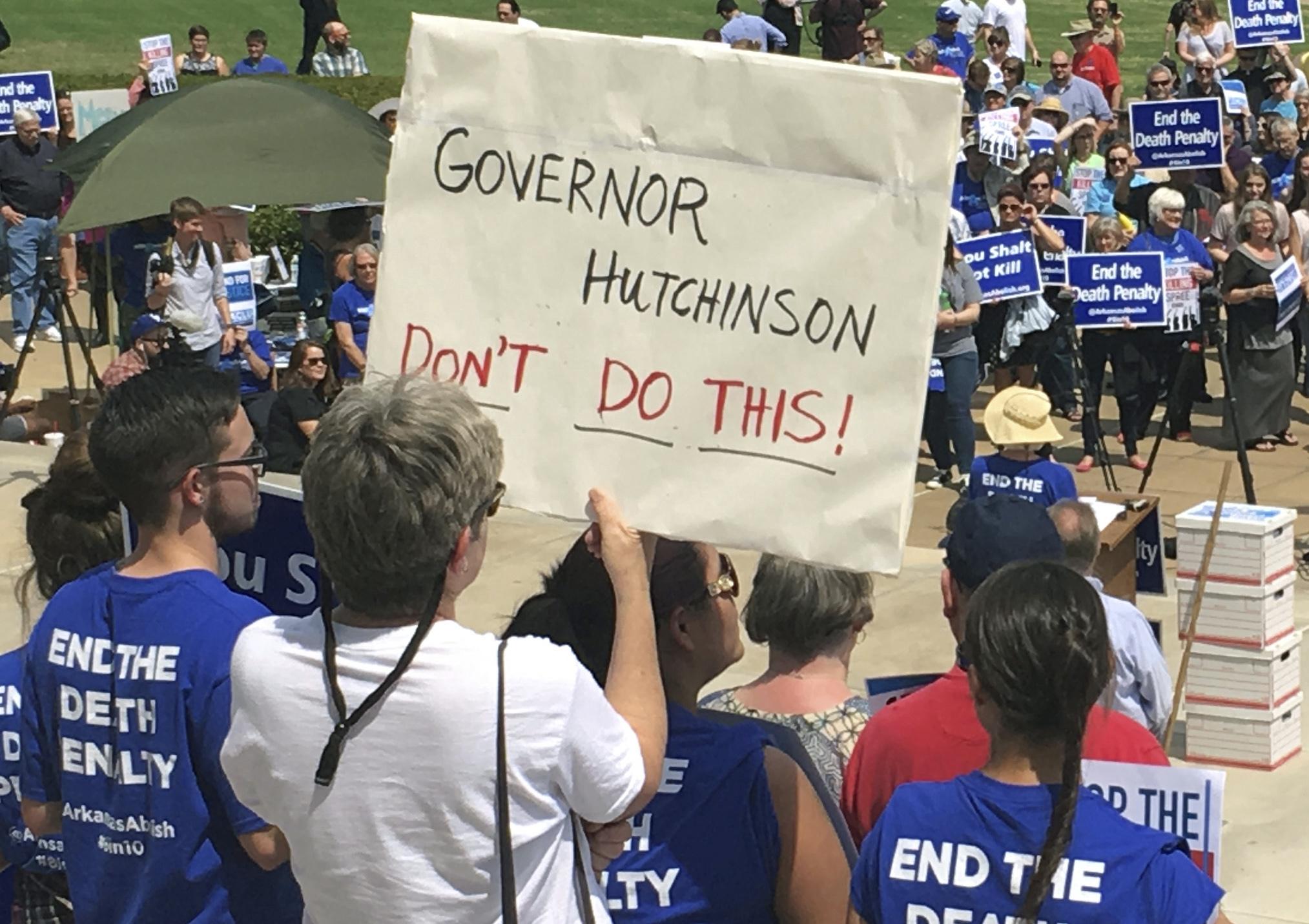Arkansas' controversial plan to execute eight men halted by courts
Two court decisions have brought a stop to what would have been the fastest pace of executions since the death penalty was reinstated in 1976

The executions of eight inmates in Arkansas have been halted as multiple legal challenges stopped a capital punishment plan branded "unconstitutional".
The challenges were filed by eight death row prisoners scheduled to be executed by the end of April — the fastest pace of executions since the death penalty was reinstated in 1976. The state had hoped to use up its supply of a lethal injection cocktail before it expired at the end of the month. Lawyers for the inmates called the rush to execute “unconstitutional” and “reckless.”
A federal judge halted one of the executions last week, and the state Supreme Court halted another on Friday. The remaining six men saw their executions halted in two separate decisions at the end of this week.
On Friday, Pulaski County Circuit Judge Wendell Griffen issued a temporary restraining order barring the state from using its supply of vecuronium bromide for the executions. Days before, a top medical supplier revealed it had provided the drug to Arkansas prisons for medical purposes — not for executions. The supplier, McKesson, said they were promised the state’s supply of vecuronium bromide would eventually be returned. It never was.
One day later, US District Judge Kristine Baker further stayed the execution of the six prisoners, saying the state’s plan would be deprive them of their right to adequate counsel.
"The court finds that plaintiffs are entitled to a preliminary injunction based on their challenge to (the state's) viewing policies, in their current form, as unreasonable restrictions of plaintiffs' right to counsel and right of access to the courts," Baker wrote. She ordered the state to return on Monday with a revised execution plan.
If the executions move forward, they will be the first in Arkansas in over a decade. Both the pace of the executions and the drugs slated to be used drew outcry from activists and civil rights groups. Particularly controversial is the use of the sedative midazolam, which has been cited in several painful, botched executions.
"The unnecessarily compressed execution schedule using the risky drug midazolam denies prisoners their right to be free from the risk of torture," John Williams, the attorney for some of the death row prisoners, said on Saturday. "We are calling on state officials to accept the federal court’s decision, cancel the frantic execution schedule, and propose a legal and humane method to carry out its executions.”
Arkansas Attorney General Leslie Rutledge said she plans to appeal both court stays.
Subscribe to Independent Premium to bookmark this article
Want to bookmark your favourite articles and stories to read or reference later? Start your Independent Premium subscription today.

Join our commenting forum
Join thought-provoking conversations, follow other Independent readers and see their replies